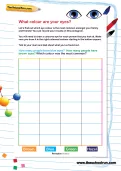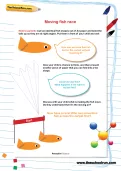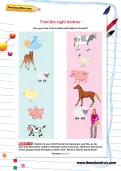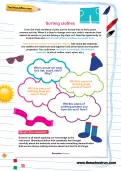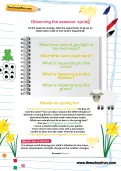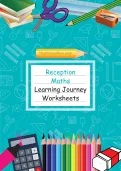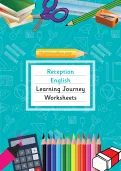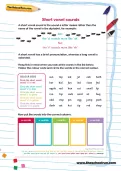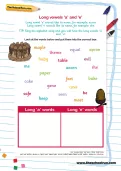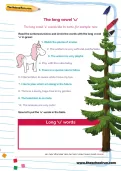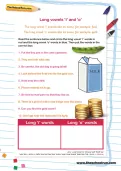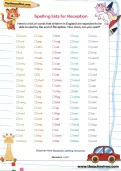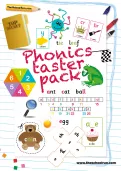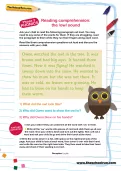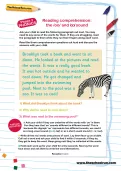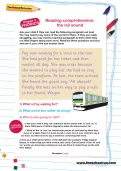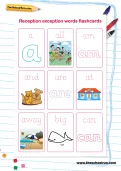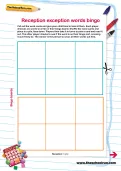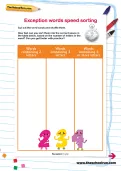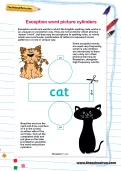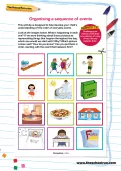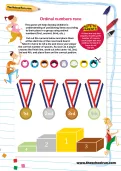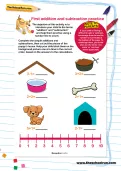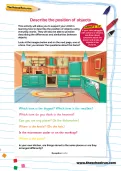TheSchoolRun's Learning Journey, compiled by Primary School teachers, includes individual programmes for every year of primary school in English and maths.
Each programme comprises 40 worksheets that cover all the core skills that your child will have been taught during the school year.
This instantly downloadable pack includes all 40 worksheets in the Reception Maths programme.
or
Register to add to your saved resources
Already a subscriber? to view this content.
TheSchoolRun's Learning Journey, compiled by Primary School teachers, includes individual programmes for every year of primary school in English and maths.
Each programme comprises 40 worksheets that cover all the core skills that your child will have been taught during the school year.
This instantly downloadable pack includes all 40 worksheets in the Reception English programme.
or
Register to add to your saved resources
Already a subscriber? to view this content.
A short vowel sound is pronounced for a shorter time than a long vowel sound. For instance, in the word fat, the vowel 'a' is short, but in fate, it's long. Use this worksheet to practise short vowel sounds and consolidate your child's phonics learning at home.
or
Register to add to your saved resources
A long vowel is pronounced for a longer time than a short vowel sound. In the word mat, the vowel 'a' is short, but in mate, it's long. Use this worksheet to practise the long vowel sounds 'a' and 'e' and consolidate your child's phonics learning at home.
or
Register to add to your saved resources
Long vowels are vowel sounds that are pronounced for a longer time than short vowels. In the word cut, the vowel 'i' is short, but in cute, it's long. Use this worksheet to practice the long vowel sounds 'u' and consolidate your child's phonics learning at home.
or
Register to add to your saved resources
Long vowels are vowel sounds that are pronounced for a longer time than short vowels. They can change the meaning of words. In the word bit, the vowel 'i' is short, but in bite, it's a long vowel sound. Use this worksheet to practice long vowel sounds 'i' and 'o' and consolidate your child's phonics learning at home.
or
Register to add to your saved resources
Here is a list of words that cover the spelling rules children are expected to learn by the end of Reception. How many can you spell?
or
Register to add to your saved resources
Introduce your child to phonics sounds with TheSchoolRun's FREE Phonics taster pack. You'll find phonics sounds mats and five games to play with Reception and Year 1 children, all designed to boost their confidence with phonics learning and help them practise their skills the fun way.
or
Register to add to your saved resources
Practise the /ow/ sound with this reading comprehension – read the passage with your child and then ask them the questions that follow.
or
Register to add to your saved resources
Already a subscriber? to view this content.
Practise spotting words with ‘oo’ in them with this reading comprehension. Read the passage with your child and then ask them the questions that follow.
or
Register to add to your saved resources
Already a subscriber? to view this content.
Practise the /oi/ sound with this reading comprehension – read the passage with your child and then ask them the questions that follow.
or
Register to add to your saved resources
Already a subscriber? to view this content.
Practise the /ai/ sound with this reading comprehension – read the passage with your child and then ask them the questions that follow.
or
Register to add to your saved resources
Already a subscriber? to view this content.
These colourful flashcards include exception words that Reception children need to learn. They were created by a teacher to assist with learning at home.
or
Register to add to your saved resources
Let's play bingo! Each player chooses six exception words to write on their bingo board then take it in turns to pick a card and read it out. The other player checks to see if the word is on their bingo mat, crossing it out if they do. The winner is the person to cross all their words out first.
or
Register to add to your saved resources
Already a subscriber? to view this content.
Let's try some exception words speed sorting! Cut out the word cards and shuffle them. How fast can you sort them into the correct space in the table, based on the number of letters in the word?
or
Register to add to your saved resources
Already a subscriber? to view this content.
Exception words are words in which the English spelling code works in an unusual or uncommon way. Read these exception words then get out your scissors and glue! We are going to make some word and picture cylinders.
or
Register to add to your saved resources
Already a subscriber? to view this content.
This activity is designed to help develop your child’s understanding of the order of everyday events. Look at the images, which represent things that happen throughout the day, and see if you can order them correctly.
or
Register to add to your saved resources
Already a subscriber? to view this content.
This racing game will help develop your child’s understanding of positioning items according to their place in a group using ordinal numbers (first, second, third, etc.).
or
Register to add to your saved resources
Already a subscriber? to view this content.
Complete the simple additions and subtractions, then cut out the pieces of the puppy’s house. Help your child stick them on the background picture one at a time in the correct order, based on the answers to the calculations.
or
Register to add to your saved resources
Already a subscriber? to view this content.
Can you find all the items in these images. You'll need to use words like 'in', 'on' and 'under'.
or
Register to add to your saved resources
Already a subscriber? to view this content.
